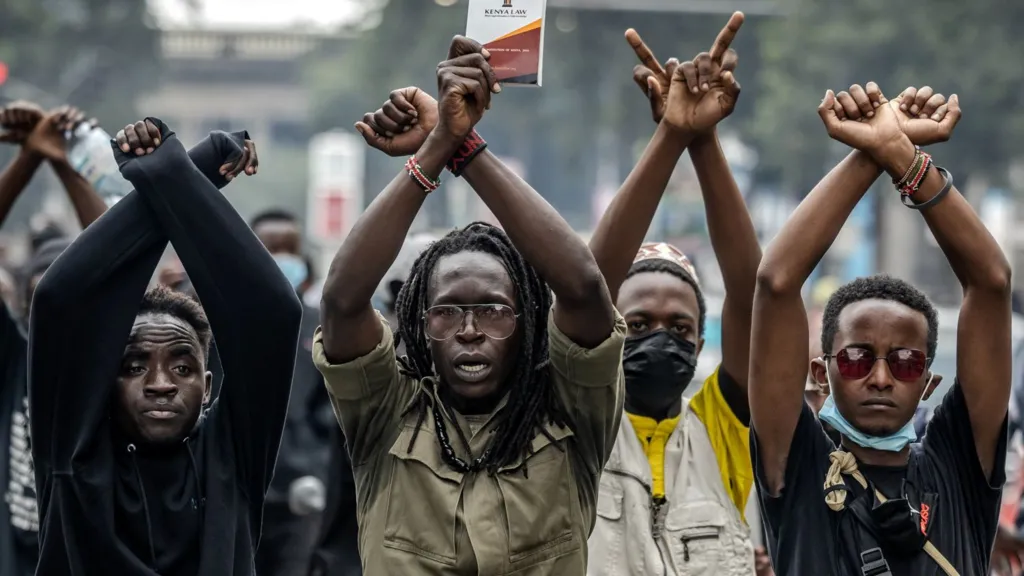The Kenyan authorities paid a network of trolls to threaten and intimidate young protesters during recent anti-government demonstrations, Amnesty International has said.
A new report by the human rights organisation said government agencies also employed surveillance and disinformation to target organisers of the mass protests, which swept Kenya across 2024 and 2025.
The demonstrations were driven largely by "Gen Z" activists who used social media platforms to mobilise.
In response to Amnesty's report, Kenya's interior minister said the government "does not sanction harassment or violence against any citizen".
But Amnesty said it had uncovered a campaign to "silence and suppress" the protesters.
Young women and LGBT+ activists were disproportionately targeted, with misogynistic and homophobic comment, as well as AI-generated pornographic images, the report said.
The BBC has approached the government for further comment.
One activist told Amnesty: "I had people coming into my inbox and telling me: 'You will die and leave your kids. We will come and attack you'.
"I even had to change my child's school. Someone sent me my child's name, the age... the school bus number plate. They told me: 'If you continue doing what you're doing then we will take care of this child for you'."
The report features a man who said he was part of a team paid between 25,000 and 50,000 Kenyan shillings (about $190-$390; £145-£300) per day to amplify government messaging and drown out trending protest hashtags on social media platform X.
As well as digital abuse, the authorities have also been accused of carrying out a brutal crackdown on the protests.
More than 100 people died, rights groups say, when police clashed with protesters during two waves of demonstrations - one in 2024 and one in 2025.
The authorities were also accused of arbitrary arrests, enforced disappearances and using lethal force against the protesters.
The government accepted there had been some case of excessive force by police, but also defended the security forces in other instances.
The demonstrations railed against issues such as proposed tax rises, increasing femicide and corruption.
Amnesty chief Agnès Callamard said the organisation's report "clearly demonstrates widespread and coordinated tactics on digital platforms to silence and suppress protests by young activists".
"Our research also proves that these campaigns are driven by state-sponsored trolls, individuals and networks paid to promote pro-government messages and dominate Kenya's daily trends on X," she added.
Kenya's Interior Minister Kipchumba Murkomen said: "The government of Kenya does not sanction harassment, or violence against any citizen... any officer implicated in unlawful conduct bears individual responsibility and is subject to investigation and sanction."
Amnesty also raised concerns about unlawful state surveillance, including allegations - denied by Kenya's largest telecom provider, Safaricom - that authorities used mobile data to monitor protest leaders.


